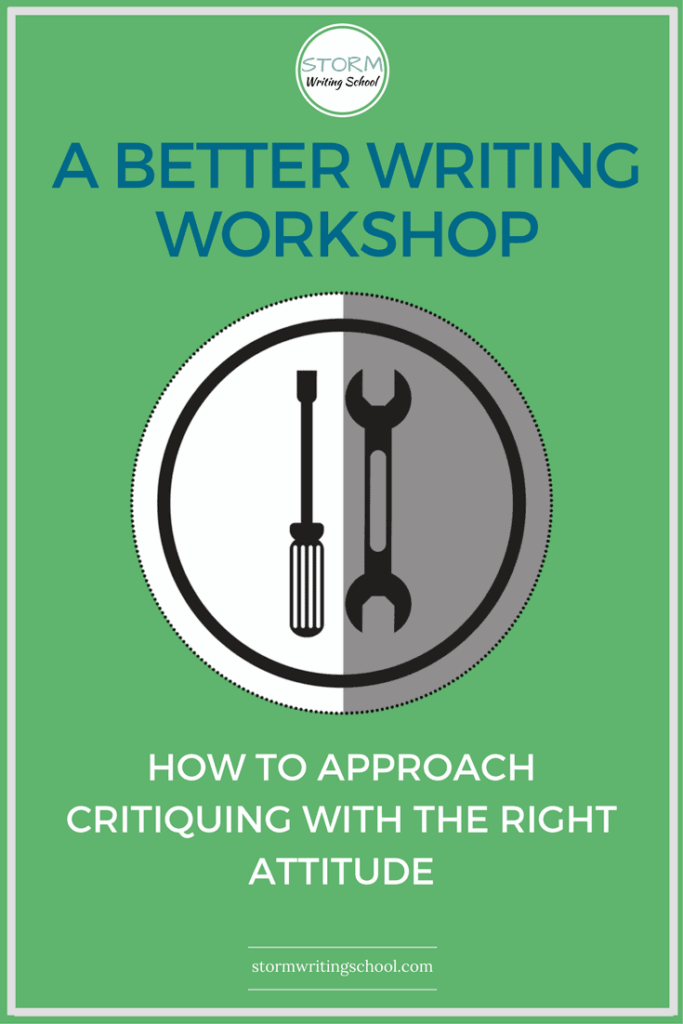The following essay is one I pass out to all members of my critique groups at the start of each semester.
The Problems
“Fiction workshops are almost inherently incapable of recognizing success,” says Madison Smartt Bell. They are “designed to be a fault-finding mechanism; their purpose is to diagnose and prescribe.” Bell points out that when he reads a manuscript and gets through a few pages that have no defect, he starts to get nervous. “Because my job is to find those flaws. If I don’t find flaws, I will have failed.”
Predicated as they are on this flaw-finding, workshops can sometimes be discouraging. Even if some of the readers in the workshop are a bit dense or full of hot air, when we’re in the writer’s seat, we fear that they might be speaking the truth. That is, it’s very difficult to learn to disregard critiques.
Furthermore, consensus among workshop readers is pretty much impossible. Everyone in the group might be an astute reader with generally good insights into successful writing, but the chances that half a dozen or more people will agree on their reactions to a work of art is next to nil. Think of how often you’ve read a book or watched a film recommended to you by a good friend—whose taste you generally trust—only to find yourself unmoved or even turned off by the recommendation.
And then what happens when we leave the workshop with a stack of annotated copies of our work? Sometimes, writers take all that feedback to heart and write a second draft that addresses everything. More often than not, such second drafts are soulless: they say the right things, but only because they’ve been beaten and tied to a chair.
If we return to workshop with that revised piece, the whole fault-finding mechanism begins again, and you can’t ever finish anything.
Now, I admit, all of the above paints a fairly bleak picture of workshopping. A critique group need not be so harsh and cruel. But these problems are, I would argue, inherent in the default model of workshopping.
So what?
Becoming a Judge
You know, I had some incredibly insightful mentors in my MFA program, but the best lesson I learned was to trust my own instincts. I mean, my instincts certainly evolved, and those astute readers had a lot to do with helping me develop my instincts to the point that they were trustworthy. But the mark of my achievement in my program was not my thesis or the publication of the stories I had written for my thesis; it was, rather, this ultimate instinct that, in my last semester, I came to trust.* As Bell says, “Your job is to become the best judge of your own work.” And the thing is, even the flawed workshop model can help you do that. In its exposing you to such a wide variety of critiques, it helps you learn to navigate them. That is, you come to gain that difficult ability to disregard some critiques.
Now, as a brief aside, I want to emphasize the importance of the verb “become” in Bell’s statement. If you think you have great instincts from the get-go, chances are very good you’re experiencing the Dunning-Kruger effect. I believe there should be some struggle in coming to have instincts you can trust. Good writers are made, not born.
Compassionate Reading
But the other takeaway from this bleak picture-painting is that an awareness of the inherent risks of workshopping might help ameliorate any damage inflicted by a process that is “incapable of recognizing success.” Critiquing a manuscript can be an act of ego (“Look at how insightful I am and how bad you are at this thing”) or an act of compassion (“I genuinely want to help you create the artwork you want to create”). It’s way more effective when it’s an act of compassion. And so, as Robert Olen Butler says, “When you get your fellow student’s manuscript, you must read it as a work of art.”
Butler makes a distinction, by the way, between the aesthetic response and the analytical response. He cites Walker Percy, who “thinks that a novel, for all its length, is just an extremely long name for a complex, evolving emotion that has no name but that.” And according to Butler,
Your experience of this name should be aesthetic, not analytical.
The primary and only necessary way of experiencing a work of literary art is not by ‘understanding’ it in analytical terms; it is by thrumming to the work of art. Like the string of a stringed instrument you vibrate inside, a harmonic is set up. So to edit work, you go back and thrum to it. And you go thrum, thrum, thrum, twang! And when you go twang as a reader, mark that passage. And you thrum on and twang on and thrum and twang and thrum and twang.
What you’re trying to do if you want to be a compassionate and helpful reader, is help the reader tune her instrument.
It’s not that technique and craft aren’t worth pointing out or discussing. They certainly are. In fact, that’s how you develop trustworthy instincts; you first learn about craft intellectually, and once you see the results of certain techniques, they simply come to feel “in tune.” But the focus for your critiquing a piece is how well it resonates with a reader. Where does the piece twang? And what’s your best guess as to why? Discussions of craft or technique need to serve the aesthetic, not dominate it and subdue it.
*This is not to say that I don’t also need astute readers. I do. Everyone does.
SaveSave
SaveSave
SaveSave
SaveSave
SaveSaveSaveSave







3 Responses
Dunning-Kruger effect… I know this. Good to have a name to describe it.